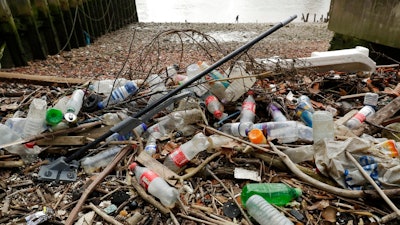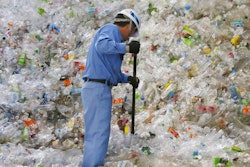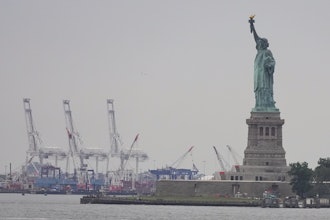
BERLIN (AP) — Plastic knives just won't cut it any longer, if the European Union has its way.
The 28-nation bloc moved closer Wednesday to banning single-use straws, plates, cutlery and cotton swabs after officials from EU member states and the European Parliament said they're following recommendations by its executive branch designed to reduce marine pollution.
Environmental campaigners have been calling for curbs on throwaway plastic that's accumulating in the oceans. Scientific studies have found minuscule particles known as microplastics are being consumed by animals throughout the food chain, though the impact on human health is unclear.
"When we have a situation where one year you can bring your fish home in a plastic bag, and the next year you are bringing that bag home in a fish, we have to work hard and work fast," said Karmenu Vella, the European commissioner for environment, maritime affairs and fisheries.
The EU's executive branch, the European Commission, estimates that almost 60 percent of the 25.8 million metric tons (28.4 million tons) of plastic waste produced in the bloc each year comes from packaging, with much of it exported to third countries rather than recycled.
German environmental group NABU claims that about 350,000 metric tons of plastic waste could be prevented in Germany alone with the ban.
Once the ban is formally approved, countries will have two years to restrict the use of single-use plastic products, which will also include drink stirrers, balloon sticks, and polystyrene food and beverage containers.
PET bottles sold in the EU will have to contain at least 25 percent recycled plastic from 2025, rising to 30 percent by 2030.
The EU also wants to work with manufacturers to inform consumers of the presence of plastic in wet wipes and cigarette filters.






















